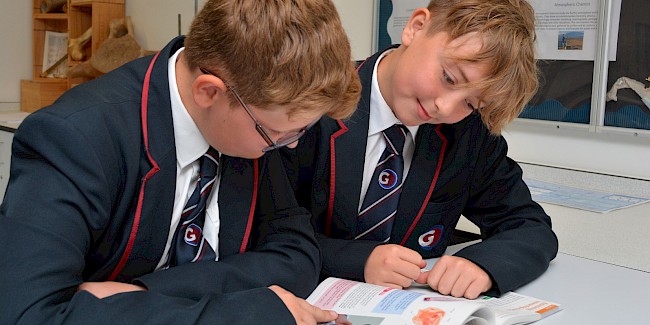How do we assess your child’s progress in KS3?
What is the aim of assessment in KS3?
At Goodwin Academy our aim is that our students learn their curriculum well so that they know more and can do more. This knowledge and capability will prepare students well for success in Key Stage 4 and beyond. It is also important that any gaps are identified in key stage 3 so that these can be effectively addressed.
To do this we use both:
Formative assessment– as an ongoing element of our teaching to check for student understanding
Summative assessment– to assess how well students are learning and remembering the curriculum
What do we assess in Key Stage 3?
In Key Stage 3 we assess students’ knowledge in two ways. The depth of their:
Declarative knowledge – how well a student knows the core facts and ideas he or she has been taught in each subject
Procedural knowledge – how well a student is able to apply these facts and ideas. This may be through practical skills, solving problems or composing an argument
The blend of these two aspects of knowledge allows a student to know both ‘what’ and ‘how to’.
What does formative assessment look like?
Checking for student understanding might take the form of:
- Questioning in lessons
- Live marking of students’ work
- Quizzes and tests in lessons or set as home learning
- Other forms of retrieval practice for students
- Practice examination style questions or essays in class or set as home learning
Teachers will use this formative assessment to help them plan lessons and provide feedback to students about what they need to do next. Such feedback will concentrate on students’ learning gaps and how to close these.
What does summative assessment look like?
Assessing how well students are learning and remembering the curriculum might take the form of:
- A test, exam or assessment
- An exam style question taken in timed or ‘closed’ conditions
- An extended piece of work
When do we report on student progress in KS3?
In Key Stage 3 we report student performance twice a year:
- Mid year: How effectively students are learning the curriculum at this point (informed by ongoing formative and summative classroom assessment.)
- End of year: How well students remember what they have learned this year and in their previous learning
We also provide an additional report for Year 7 at the end of half term 1 to support their transition to secondary study.
How do we use assessment on entry to Year 7 to know our students’ learning better?
At Goodwin Academy we are keen to know our students’ learning well. For this reason, as well as working closely with our primary schools through the transition process, we undertake our own baseline assessments in the September of Year 7. These low stakes assessments allow us to gain a richer picture of our students’ performance, potential, areas of strength and areas where learning gaps may need to be closed. We also use them to identify where students may require additional support within the Formal Curriculum.
What baseline assessments do students take?
- Cognitive Ability Tests (CATs)
- Progress Tests in English, mathematics and science.
